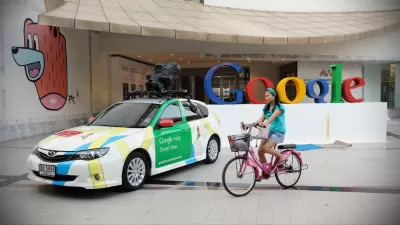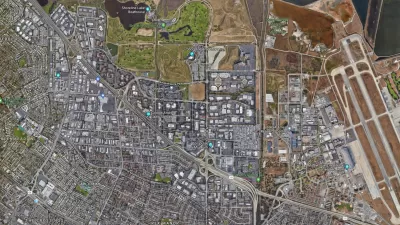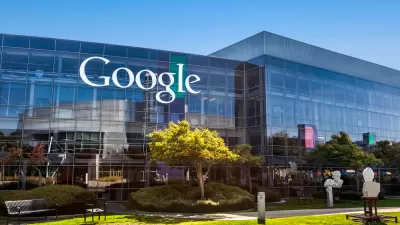Negotiations between the city of Mountain View and tech giant Google over the latter's plans to expand its headquarters recently took a strange turn.
"Google has backed down from a threat to deny badly needed housing in Mountain View if it isn’t given more office space for its futuristic new 'Charleston East' campus," reports Ethan Baron.
The ongoing evolution of the political situation surrounding Google's plans for its campus expansion shows the complicated nature of development in the Silicon Valley—where jobs are plentiful and housing is in short supply. Google's announcement last week was seem as an ultimatum from a bully, according to Mountain View politicians like vice-mayor Lenny Siegel.
At an attempt at reconciliation, Google sent a letter apologizing for the strong tone of the original statement. The letter also "proposed that city fees from development of housing and parks in North Bayshore could be used to offset housing costs, particularly for affordable homes," reports Baron. The plans for nearly 10,000 homes in the North Bayshore area has been a centerpiece of the plan since its original conception (the city even made space for the development in its plans for the North Bayshore area), so city stakeholders didn't react well to the proposal being treated as leverage for extra commercial space.
The article includes a lot more details about the planned development as it currently stands. The development is expected to go before the full Mountain View City Council in November.
FULL STORY: Google backs down from threat to cancel Mountain View housing

Study: Maui’s Plan to Convert Vacation Rentals to Long-Term Housing Could Cause Nearly $1 Billion Economic Loss
The plan would reduce visitor accommodation by 25,% resulting in 1,900 jobs lost.

Alabama: Trump Terminates Settlements for Black Communities Harmed By Raw Sewage
Trump deemed the landmark civil rights agreement “illegal DEI and environmental justice policy.”

Why Should We Subsidize Public Transportation?
Many public transit agencies face financial stress due to rising costs, declining fare revenue, and declining subsidies. Transit advocates must provide a strong business case for increasing public transit funding.

Paris Bike Boom Leads to Steep Drop in Air Pollution
The French city’s air quality has improved dramatically in the past 20 years, coinciding with a growth in cycling.

Why Housing Costs More to Build in California Than in Texas
Hard costs like labor and materials combined with ‘soft’ costs such as permitting make building in the San Francisco Bay Area almost three times as costly as in Texas cities.

San Diego County Sees a Rise in Urban Coyotes
San Diego County experiences a rise in urban coyotes, as sightings become prevalent throughout its urban neighbourhoods and surrounding areas.
Urban Design for Planners 1: Software Tools
This six-course series explores essential urban design concepts using open source software and equips planners with the tools they need to participate fully in the urban design process.
Planning for Universal Design
Learn the tools for implementing Universal Design in planning regulations.
Smith Gee Studio
Alamo Area Metropolitan Planning Organization
City of Santa Clarita
Institute for Housing and Urban Development Studies (IHS)
City of Grandview
Harvard GSD Executive Education
Toledo-Lucas County Plan Commissions
Salt Lake City
NYU Wagner Graduate School of Public Service





























